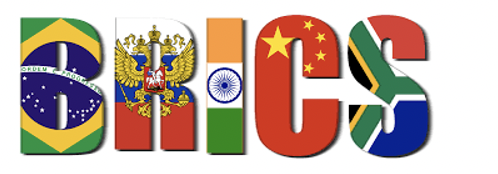
Brazil, Russia, India, China, and South Africa are frequently referred to as the BRICS nations, following economist Jim O’Neill’s creation of the term BRIC (for Brazil, Russia, China and India) in 2001. These countries were predicted to be the economic strongholds that would dominate global trade by 2050. South Africa was added to the list of BRIC nations in 2010 and Saudi Arabia, Ethiopia, Iran, the United Arab Emirates (UAE), Egypt and Argentina were invited to join in 2023 as countries with some of the fastest growing economies. These economies have shaped the global political landscape since the foundation of the bloc, as its influence permeates developing nations.
The BRICS Summits began in 2009 and are held annually, focusing largely on areas relating to: peace, security and collaboration and the overall aim to increase both political and economic stability. The first of these summits was held in Russia, where the four original nations established their membership of the BRIC economic bloc. The general aims of this summit surrounded securing sustainable development and providing aid for other developing economies, stating that “developed countries should fulfil their commitment of 0.7% of Gross National Income for the Official Development Assistance” (with significant efforts also being made in areas such as debt relief and technology transfer). South Africa became a member of the bloc the very next year at the summit hosted by Brazil, which for developed on the previous summit’s aims for effective cooperation throughout the current global transformation of both political and economic spheres.
Many other countries now vie for entry into the BRICS bloc. Most recently, Nigeria attempted to gain entry, but to the country’s dismay, was unsuccessful. Instead, Saudi Arabia, Ethiopia, Iran, the UAE, Egypt and Argentina were invited into the bloc and will formally gain their membership in January of 2024. The exact reason behind Nigeria’s rejection from the bloc is not entirely clear, but is considered to be related to the corruption that has overtaken the government, as well as the country’s relatively weak economic structures. Pakistan is another country hoping for entry into the bloc, having now made a formal request for membership. However, Pakistan is concerned about its chances of success for fear that India will block its request. The country’s apprehensions are not entirely unfounded given that “one member” of a major policy dialogue event that took place in 2022 alongside the BRICS leadership summit, blocked Pakistani participation. Pakistani chances also seem slimmer given their refusal to support anti-Russian sanctions, where, at the 2023 summit these were largely supported.
The 2023 summit in Johannesburg shared many of its predecessors’ focuses, centring around sustainable development and multiculturalism. Participation was seen from all five countries, however Putin was not in attendance. Given the International Criminal Court (ICC) has issued an arrest warrant for him in relation to his war crimes in Ukraine, it is speculated that his absence was a tactic to avoid arrest in South Africa. This summit was significant in the bloc’s history as it saw unanimous support for expanding the institution’s membership for the first time since South Africa’s admission in 2010. The extension of the bloc is also a major development as it signifies the increasing discontent felt towards the West’s inclination to exploit payment schemes, and failure to recognise the needs of the Global South during the pandemic. This marked a huge step in the movement away from the Western world view, that has been the norm for so many years.
The BRICS nations bloc has been hugely influential in shaping the growth of developing countries’ economies, and can be expected to have further influence following its 2024 expansion. The development of multiculturalism and multilateralism that comes with the bloc’s extension promises a new global economic structure, and the potential for a complete shift away from Western domination.
Image reference: “What is Brics”, Tom Wilkinson, 2023//CC BY-SA 4.0 DEED



Average Rating